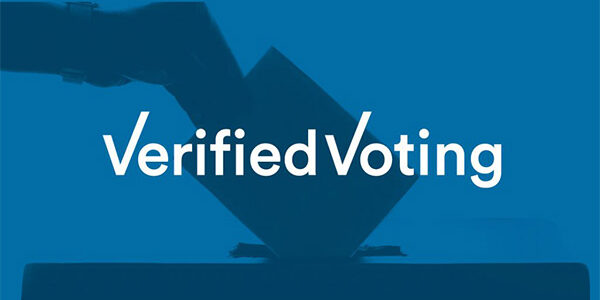Laurel M. Lee
Secretary of State State of Florida
500 S Bronough Street
Tallahassee, FL 32399
RE: Comments on Proposed Rule 1S-5.026 and Recommendations for Improvement
Dear Secretary Lee,
On behalf of Verified Voting, I submit these comments on proposed Rule 1S-5.026. Verified Voting is a nonpartisan nonprofit organization with a mission to strengthen democracy for all voters by promoting the responsible use of technology in elections. Since our founding in 2004 by computer scientists, we have acted on the belief that the integrity and strength of our democracy rely on citizens’ trust that each vote is counted as cast. Included in these comments are several recommendations that would improve the security of elections in Florida and would also bolster confidence in the election outcomes. We understand that some of these changes and recommendations will require legislative change but urge you to consider incorporating these comments and recommendations into a proactive legislative strategy.
Nearly all U.S. votes today are counted by computerized voting systems. Such voting systems have produced outcome-changing errors through hardware, software, and procedural problems. Well-designed and properly performed post-election tabulation audits provide solid public evidence for the initial tabulation outcome when it is correct — and an opportunity to correct the outcome when it is not. The public must also have confidence in the outcomes and how the election was conducted. The Global Commission on Elections, Democracy, and Security put it this way: “[Election integrity] depends on public confidence in electoral and political processes.”1 We recommend that any audit conducted in Florida be done pre-certification to correct an outcome if needed.
In addition to detecting errors (whether accidental or intentional) and documenting accurate counts, good tabulation audits can deter hacking, malware, and fraud. Automated audits that rely exclusively on technology, with no manual examination of ballots, partly confer some of these benefits, but also open avoidable and dangerous security holes. Researchers from the University of Michigan found “that image audits can be reliably defeated by an attacker who can run malicious code on the voting machines or election management system…. These results demonstrate that post-election audits must inspect physical ballots, not merely ballot images, if they are to strongly defend against computer-based attacks on widely used voting systems.”2 Moreover, audits should address the concerns of voters who are even more skeptical of “machines checking machines” than security experts are. Manually examining some ballots can bolster public confidence by providing direct evidence that the automated system performed as it should. For this reason, we recommend any post-election audit examine the physical paper ballots in addition to any digital artifacts. Nothing in Florida statute precludes directly examining some ballots to provide a check of the audit system.
Risk-limiting audits (RLA) are robust tabulation audits designed to efficiently confirm that election outcomes match what a full hand count of those ballots would reveal. These audits have been widely endorsed by security specialists and election officials and have been recommended by the American Statistical Association, U.S. Department of Homeland Security, the U.S. Senate Select Intelligence Committee, the U.S. Election Assistance Commission, and many other experts as one element of a strong and resilient election infrastructure. Election officials across the country have taken the lead in piloting and implementing RLAs as an election security measure. We recommend Florida explore piloting RLAs, which would be another step forward for election security in the state.
An omission from the proposed rule is guidance on what an election official is supposed to do if a discrepancy is found between the certified results and the audit results. Audits often find minor discrepancies that are easily fixed and/or explained. However, audits also may find larger discrepancies that alter election outcomes. We recommend clear and direct guidance be given on addressing discrepancies, whether marginal or consequential.
We stand ready to assist Florida election officials in crafting a revised rule that would better support justified public confidence in election outcomes.
Respectfully submitted,
Mark Lindeman, Ph.D.
Director
- Global Commission on Elections, Democracy and Security, Deepening Democracy: A Strategy for Improving the Integrity of Elections Worldwide (2012). https://www.idea.int/sites/default/files/publications/deepening- democracy.pdf [↩]
- Matthew Bernhard et al., UnclearBallot: Automated Ballot Image Manipulation (2019). https://mbernhard.com/papers/unclearballot.pdf [↩]
